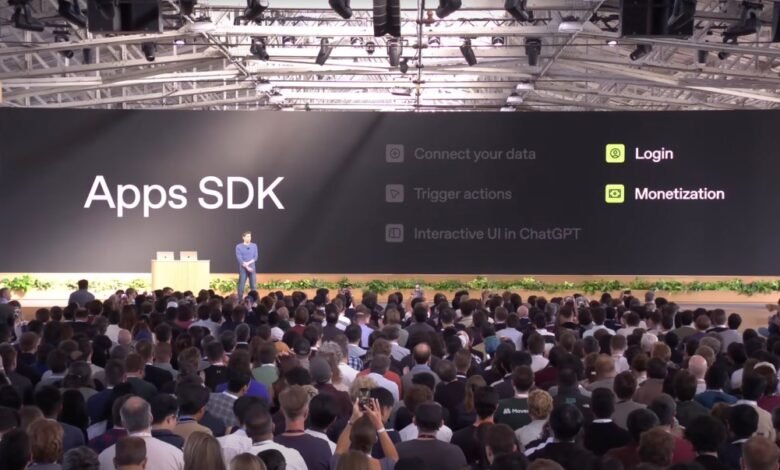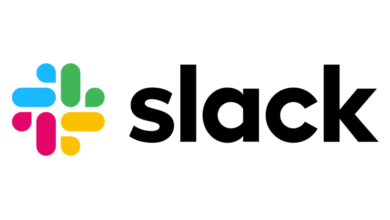OpenAI’s AI Commerce Race: Who Will Win?

▼ Summary
– OpenAI demonstrated at its dev day how ChatGPT can integrate apps like Spotify and Figma, offering a vision of an AI-first internet with direct command execution.
– The company has established infrastructure for AI-driven commerce through Instant Checkout and app interfaces, positioning ChatGPT as a platform for buying and selling.
– ChatGPT’s partnerships with services like Uber, Expedia, and Instacart could make it a portal for users’ discretionary spending, expanding OpenAI’s business beyond subscriptions.
– OpenAI faces competition in AI commerce from companies like Google and Adobe, with Google’s AP2 protocol offering a broader but less advanced alternative.
– The success of AI-driven shopping depends on user adoption, as current systems are not yet widely available and public interest beyond simple searches remains untested.
During its recent developer conference, OpenAI unveiled a bold strategy to embed applications directly within ChatGPT, offering a compelling glimpse into an AI-centric digital ecosystem. The demonstration illustrated how users could seamlessly access services from platforms like Spotify and Figma without ever leaving the chat interface. This move signals a significant shift toward an internet where conversational AI not only retrieves information but also performs complex tasks, positioning ChatGPT as a central hub for daily digital interactions.
Observers quickly noted the substantial financial potential woven into this framework. Just prior to the event, OpenAI introduced Instant Checkout, a streamlined payment system designed to facilitate single transactions across major e-commerce platforms such as Shopify, Etsy, and Stripe. Complementing this, the new apps infrastructure allows businesses to construct their own customized storefronts inside ChatGPT. Together, these components form a complete ecosystem for AI-powered commerce, transforming the chatbot into a destination for both shoppers and sellers.
This represents a major new revenue stream for OpenAI, with far-reaching consequences for the broader technology sector. The company now finds itself competing not only with other AI developers like Google and Anthropic but also with retail giants including Amazon and Walmart. A review of OpenAI’s announced app partners reveals the ambitious scope of this vision. Through ChatGPT, users will soon be able to hail an Uber, plan a vacation via Expedia, hire local services through Thumbtack, and purchase groceries, meals, or general merchandise from Instacart, DoorDash, and Target. With these capabilities, ChatGPT could evolve into the primary channel for a significant portion of user discretionary spending.
Success in this arena would deliver value far beyond the current subscription fee. Although specific financial arrangements remain undisclosed, OpenAI is positioned to earn a share of every transaction conducted on its platform, much like traditional app stores. Moreover, by leveraging its extensive user data to make personalized product recommendations, ChatGPT gains considerable influence over purchasing decisions. This dynamic strengthens OpenAI’s role as a super-aggregator, directing consumer traffic to retailers and capturing an ever-growing slice of digital commerce. Among the various paths OpenAI could pursue, AI-driven retail represents one of the most profitable opportunities available.
Other industry leaders are also targeting this emerging space. On the same day as OpenAI’s announcement, Adobe released a forecast predicting that AI-assisted shopping will dominate the upcoming holiday season, with consumers increasingly turning to chatbots over search engines to locate the best offers. A separate Mastercard analysis identified agentic commerce as a new competitive battleground in finance. Not to be left behind, Google has introduced its own framework, AP2, for autonomous shopping agents. While Google’s approach has a wider scope, it currently lacks the momentum of OpenAI’s integrated platform.
At its most basic, AI shopping involves using ChatGPT to find products instead of a search engine, for example, asking it to locate canvas tennis shoes under $80. However, the technology enables much more than passive searching. Specifications like AP2 allow for agent-initiated purchases, such as automatically buying concert tickets the moment they go on sale or booking a flight when the price drops below a set threshold. In more advanced scenarios, AI agents could even negotiate with seller-side systems to secure better deals or bundle products. If both retailers and consumers embrace these tools, the impact could extend well beyond a simple digital checkout process.
The critical unknown is whether shoppers will adopt these AI commerce tools. While the concept holds clear appeal for OpenAI, Stripe, Mastercard, and other platform partners, everyday users have so far shown limited interest in automated shopping systems beyond basic product searches. This is partly because fully functional agentic commerce is not yet widely available. It will be several months before the average consumer can experience a complete AI shopping assistant. When that moment arrives, user adoption will determine the success of this ambitious new model.
(Source: TechCrunch)





